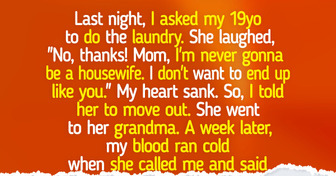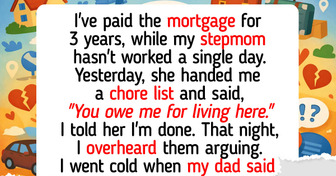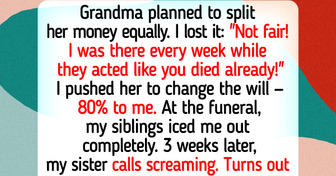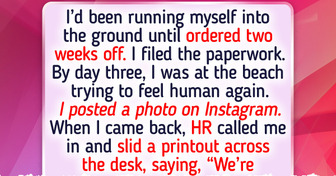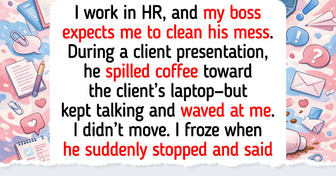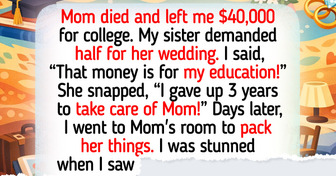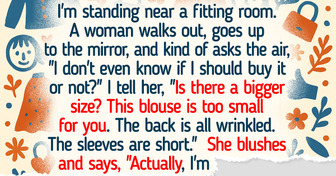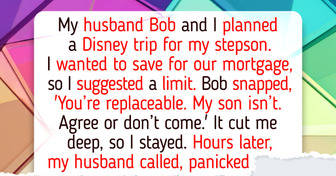14 Unique People Who Seem to Have Aliens Among Their Ancestors

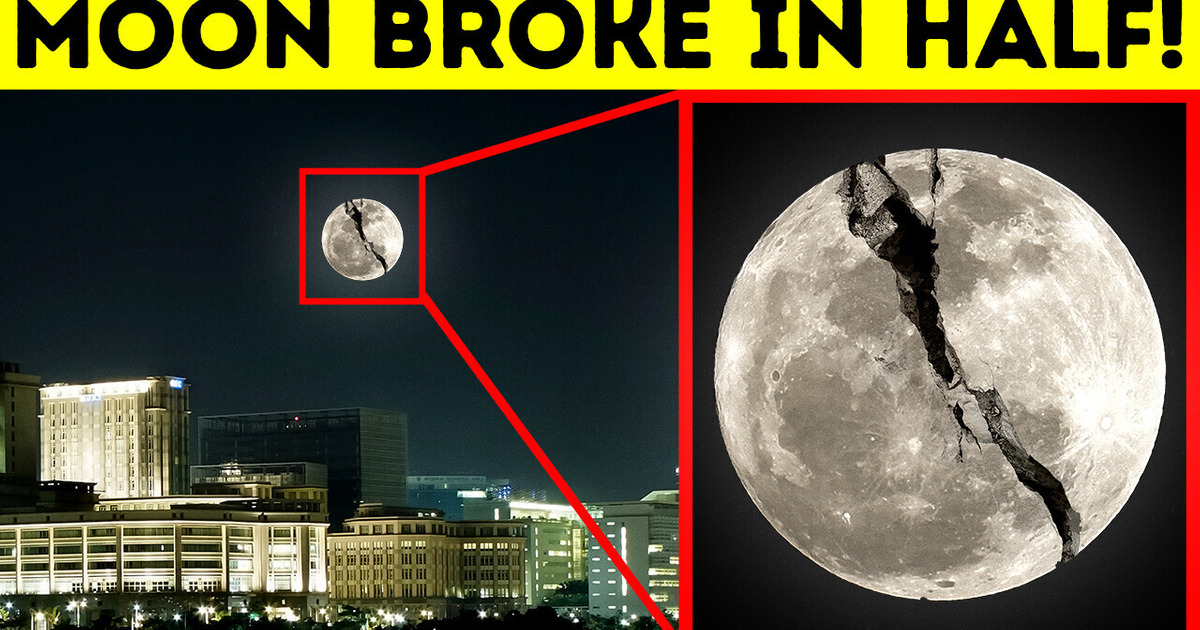
About 8 billion inhabitants of planet Earth found the same terrible news in one day. Someone saw it on TV. Others heard it on the phone while scrolling through social media or listening to music. Some witnessed this news in a dream while sleeping. Someone’s voice said it in all languages to ensure everyone understood it.
“I have good and bad news for you. Let’s start with the bad news. You’re all characters in YouTube videos in which your planet gets into a situation where the Moon breaks in half. For the audience, it will be a hypothetical story. But for you, these events will become a reality. The good news is that... I was joking. There is no good news. But don’t worry, the apocalypse won’t start on your planet. Maybe just a little bit. Have a nice day.”
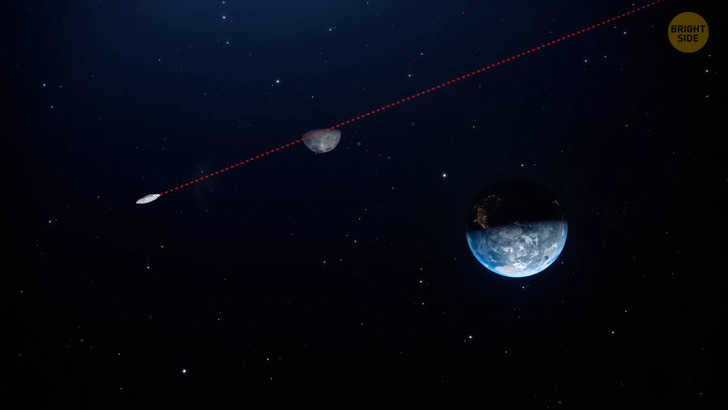
At first, the entire population panics. Then, a few days later, everyone calms down. Maybe it was a mass hallucination, and the Moon will be alright? But at this moment, scientists have discovered the danger. A colossal meteorite is flying towards us from the distant depths of space.
This meteorite is superfast and pretty flat but has sharp edges. Fortunately, it will miss the Earth by a few thousand miles. But the Moon won’t be that lucky. The meteorite flies through our Earth’s only natural satellite directly in the middle. So, it passes through the Moon, sweeps past our planet, and flies away into distant space.
At this moment, all people can’t take their eyes off the Moon. The meteorite cuts it perfectly in half. Gently, clearly, and painlessly. So, what shall we do now? Will the Earth survive this?
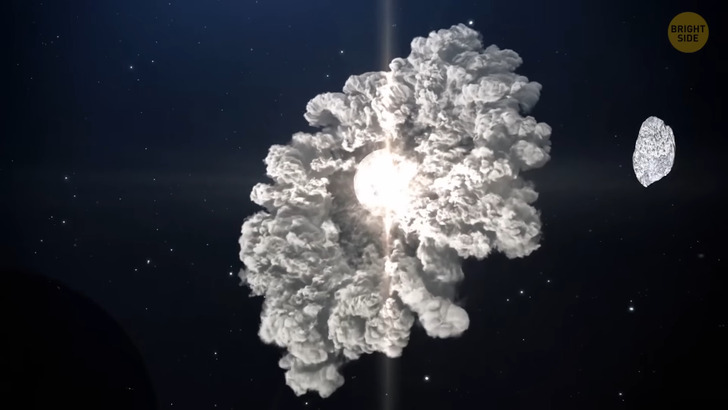
Our satellite breaks into two equal parts. But fortunately, they don’t fly away from each other. The Moon’s great gravity attracts them back like a magnet. Scientists are sure that the parts will connect in a couple of billion years, and the Moon will become the same as it used to be. But the coolest thing is that people won’t feel any changes. Everyone around the world will celebrate this good news. The voice was wrong!
But then another problem appears. A massive meteorite in the form of a shoe is flying from the deepest space to us. It enters our Solar System and approaches the Earth at high speed. The space boot crashes into one half of the Moon and then flies away. Now, the Moon is definitely breaking into two parts. The first half remains in the same place. The second one is flying towards us.
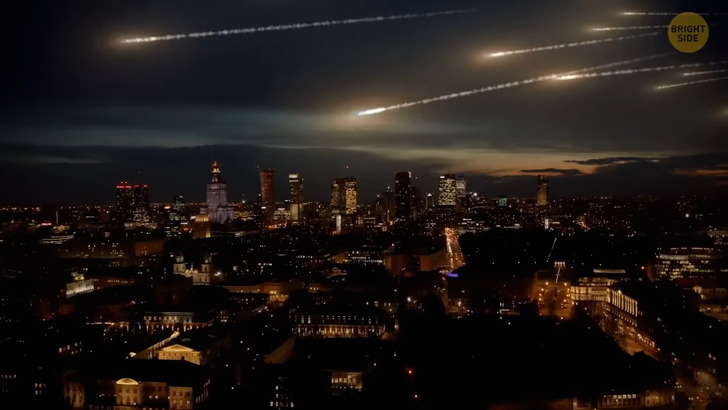
A small meteor shower begins on Earth because of the falling Moon fragments. But it’s not so bad. Most of these rocks are burning up in the atmosphere.
But almost the entire split-off half is falling apart around the orbit of our planet. It forms a stone belt. Now the Earth is like Saturn. Rotating fragments destroy part of our artificial satellites. Communication and the Internet work inconsistently.
It takes people a couple of years to restore a stable connection. The International Space Station no longer exists. Luckily, all the astronauts managed to return to the Earth before half of the Moon got to them. So, moon rocks are flying around the planet, and people see half the Moon in the sky. Life doesn’t change much for the first few days. But those who live on the coast of the seas and oceans notice the consequences.
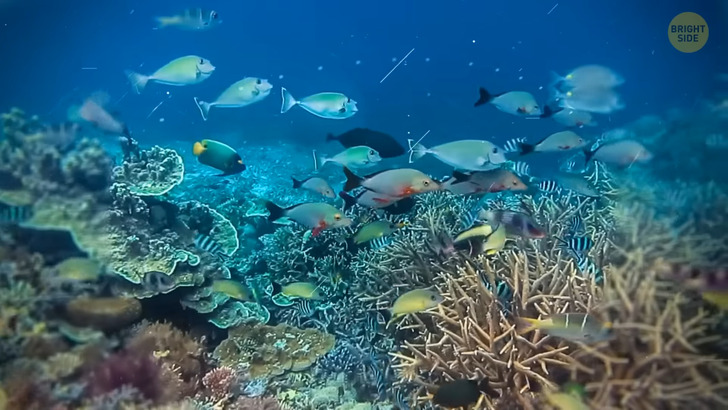
The Moon used to influence the tides. It was flying around the Earth and made oceans take an oval shape. There were tides on the side where the Moon was closer. There were ebbs on the opposite side. But now this schedule is wrong.
Half of the Moon attracts less water. Yes, the Moon lost half its weight and began approaching the Earth. But its gravitational force has become weaker. Seabirds, many species of fish, sea turtles, and other coastal animals may not survive these changes. Their natural instincts, associated with the Moon, helped them determine the time for getting food, breeding, and flying south.
For example, tiny turtles expect a strong tide in the morning. They run to the water, but the water doesn’t reach them. Turtles can’t hide in the ocean in time and become dinner for seagulls. Crabs can’t lay eggs because the tide has started earlier than usual. Wolves go mad in the woods. They howl loudly every night and can’t stop. The whole natural world can’t understand what’s going on.
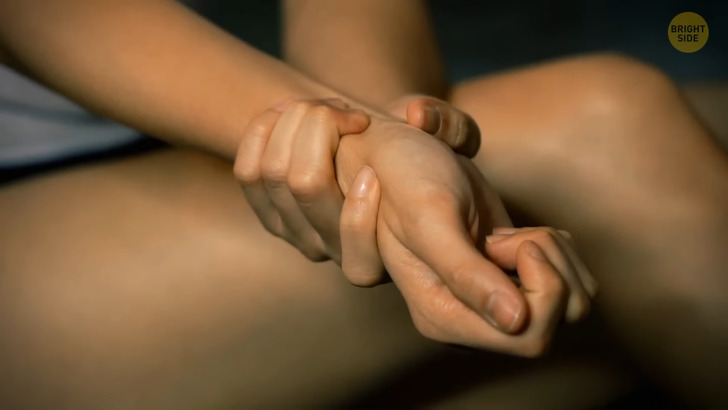
The human body is also feeling some discomfort. Many people have low and high blood pressure, and some experience severe headaches. Half of the Moon changes the entire ecosystem of the planet. Adapting to new conditions will take tens, maybe hundreds of years.
A couple of weeks pass, and people notice the days are now shorter. The Moon always slowed the Earth’s rotation and made one day last 24 hours. The Earth is spinning faster now. The night and the morning come earlier than everyone is used to.
Earth’s rotation speed has increased and reduced the number of hours per day to 15. People suffer from insomnia or oversleeping. The body needs time to get used to it.

Work schedules are changing all over the world. Previously, people came to the office at 9 and left at 6. Now they arrive at 7 am and leave at 2 pm. Sleep time got shorter, and people are really sad because of this.
Progress slows down because of the short working time. The technologies of the future are now 20–30 years late. Hourly pay remains the same, so bosses now pay less for fewer working hours. The whole Moon stabilized the weather and climate on the planet.
Look at Mars! It has two small moons. They quickly spin around it and rock Mars around its axis. As a result, strong winds, sandstorms, and thunderstorms often happen on the Red Planet. Now the half of the Moon that approached us takes the Earth out of stable rotation. This changes the seasonal temperatures in the world.
It gets even hotter in hot places, and snowstorms are raging in cold regions. There are short massive downpours instead of sunny weather. A typical breeze can grow into a hurricane and small waves — into a tsunami. The seasons are changing faster now. Winters are colder, and summers are hotter.

Changing the rotation of the planet affects the Earth’s magnetic field. Since the compass and navigation systems are unstable now, we need to re-calculate where the north and the south are. Birds can’t fly south to wait out the winter since they don’t know what direction to fly. Their inner compass is broken. Several hundred years have passed. People are entirely accustomed to the new conditions on Earth.
New species of animals and fish have appeared. Birds can navigate the sky by the Moon again. The planet’s economy has been restored. Hourly wages have become higher. People now get enough sleep 5–6 hours a day and work for 4–5 hours.
The reduction of day and night has also affected the entertainment industry. Movies now last one hour. One episode of some TV series lasts 30 minutes. Life goes faster. An average person now lives to be 96 years old. In fact, the passage of time hasn’t changed at all. Its calculus did.
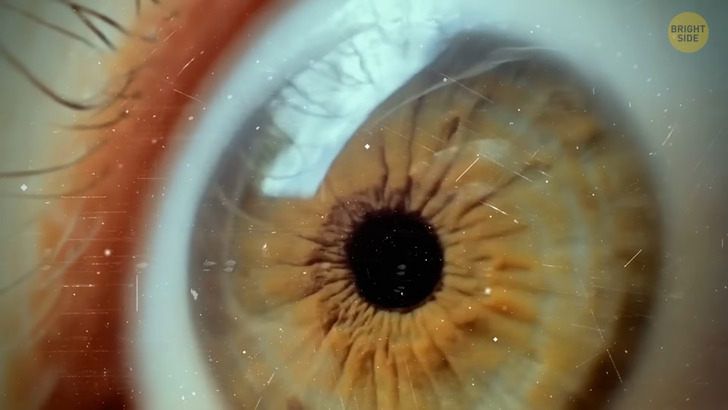
Several thousand years have passed. People look different. Now they have big eyes that absorb more light. Half of the Moon doesn’t shine as bright as the whole thing, so the nights have become darker. It took the human eye a couple of thousand years to develop the ability to see clearly in this new dark. Animals need to navigate better in these conditions, so their eyes have also become larger and more sensitive.
During all this time, people have cleared the orbit of moon rocks. Several space stations fly around our planet. And again, people hear this strange voice that once told them they were all characters in one hypothetical YouTube video. This time the voice says: “Your story ends because the video ends. I’m sorry. Good night.”

